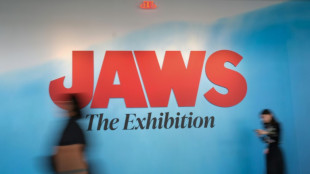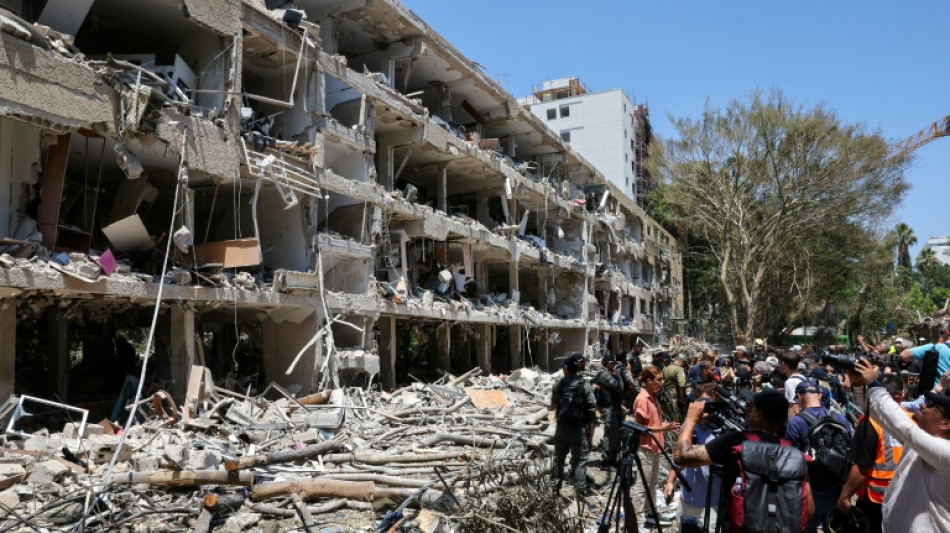
-
 Monaco squeeze past 10-man Auxerre to climb to third
Monaco squeeze past 10-man Auxerre to climb to third
-
Former Aspiration exec denies Leonard had 'no-show' deal

-
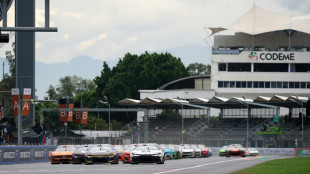 IndyCar drops bid for '26 Mexico race due to World Cup impact
IndyCar drops bid for '26 Mexico race due to World Cup impact
-
Ogier makes a splash at Rally of Chile
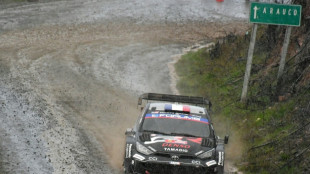
-
 Arsenal spoil Ange return, Chelsea held by Brentford
Arsenal spoil Ange return, Chelsea held by Brentford
-
Chelsea blow chance to top Premier League at Brentford

-
 Atletico beat Villarreal for first Liga win
Atletico beat Villarreal for first Liga win
-
Last-gasp Juve beat Inter to keep pace with leaders Napoli

-
 England's Hull leads Jeeno by one at LPGA Queen City event
England's Hull leads Jeeno by one at LPGA Queen City event
-
Clashes with police after up to 150,000 gather at far-right UK rally
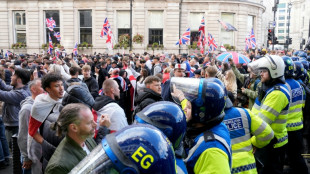
-
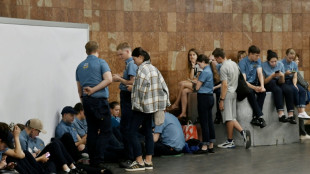 Romania, Poland, scramble aircraft as drones strike Ukraine
Romania, Poland, scramble aircraft as drones strike Ukraine
-
Netanayhu says killing Hamas leaders is route to ending Gaza war
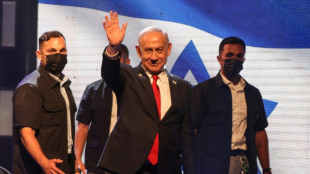
-
 New Zealand and Canada to face off in Women's Rugby World Cup semi-final
New Zealand and Canada to face off in Women's Rugby World Cup semi-final
-
France's new PM courts the left a day after ratings downgrade
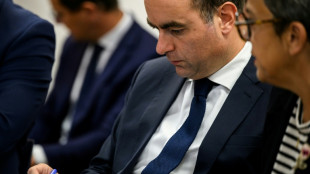
-
 Last-gasp Juve beat Inter to maintain perfect Serie A start
Last-gasp Juve beat Inter to maintain perfect Serie A start
-
Kane hits brace as Bayern thump Hamburg again

-
 Arsenal spoil Ange return, Spurs win at West Ham
Arsenal spoil Ange return, Spurs win at West Ham
-
Sri Lanka cruise to six-wicket win over Bangladesh in Asia Cup T20
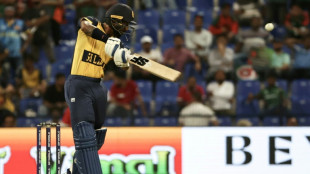
-
 Spurs beat woeful West Ham to pile pressure on Potter
Spurs beat woeful West Ham to pile pressure on Potter
-
Rubio says Qatar strike 'not going to change' US-Israel ties
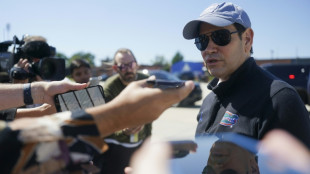
-
 Toulouse turn on Top 14 power despite sub-par performance
Toulouse turn on Top 14 power despite sub-par performance
-
Canada cruise past Australia into semi-finals of Women's Rugby World Cup

-
 Vienna wins on home turf as it hosts first tram driver world cup
Vienna wins on home turf as it hosts first tram driver world cup
-
Who is Tyler Robinson, alleged killer of Charlie Kirk?
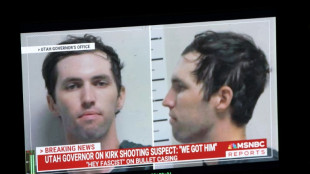
-
 London police arrest nine after clashes at 110,000-strong far-right rally
London police arrest nine after clashes at 110,000-strong far-right rally
-
Mbappe shines as 10-man Real Madrid defeat Real Sociedad

-
 Kenyan officials, athletes call for fast action on doping
Kenyan officials, athletes call for fast action on doping
-
Arsenal spoil Ange return, Woltemade earns Newcastle win

-
 Guirassy extends streak as Dortmund cruise past 10-man Heidenheim
Guirassy extends streak as Dortmund cruise past 10-man Heidenheim
-
Vingegaard touching Vuelta glory with stage 20 triumph as protests continue

-
 'World's fastest anime fan' Lyles in element at Tokyo worlds
'World's fastest anime fan' Lyles in element at Tokyo worlds
-
De Minaur's Australia trail as Germany, Argentina into Davis Cup finals

-
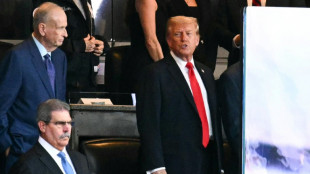 Airstrikes, drones, tariffs: being US friend not what it used to be
Airstrikes, drones, tariffs: being US friend not what it used to be
-
Cyclists swerve protest group in road during Vuelta stage 20

-
 A Tokyo full house revels in Chebet and sprinters at world athletics champs
A Tokyo full house revels in Chebet and sprinters at world athletics champs
-
Holders New Zealand fight past South Africa into Women's Rugby World Cup semis
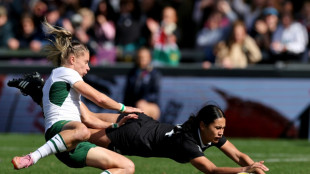
-
 Ex-Olympic champion Rissveds overcomes depression to win world mountain bike gold
Ex-Olympic champion Rissveds overcomes depression to win world mountain bike gold
-
Kenya's Chebet wins 10,000m gold, suggests no tilt at world double
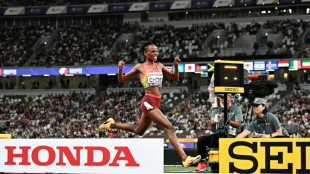
-
 Arsenal ruin Postecoglou's Forest debut as Zubimendi bags brace
Arsenal ruin Postecoglou's Forest debut as Zubimendi bags brace
-
Shot put legend Crouser wins third successive world title

-
 Bezzecchi wins San Marino MotoGP sprint as Marc Marquez crashes out
Bezzecchi wins San Marino MotoGP sprint as Marc Marquez crashes out
-
Kenya's Chebet wins 10,000m gold to set up tilt at world double
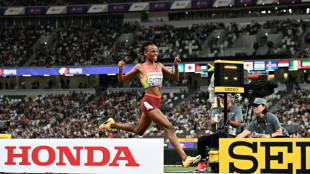
-
 Lyles, Thompson and Tebogo cruise through world 100m heats
Lyles, Thompson and Tebogo cruise through world 100m heats
-
Vuelta final stage shortened amid protest fears

-
 Collignon stuns De Minaur as Belgium take Davis Cup lead over Australia
Collignon stuns De Minaur as Belgium take Davis Cup lead over Australia
-
Nepal returns to calm as first woman PM takes charge, visits wounded
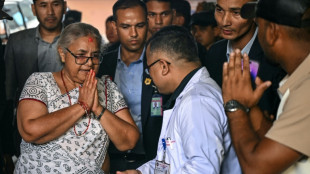
-
 Olympic champion Alfred eases through 100m heats at Tokyo worlds
Olympic champion Alfred eases through 100m heats at Tokyo worlds
-
Winning coach Erasmus 'emotional' at death of former Springboks

-
 Barca's Flick blasts Spain over Yamal injury issue
Barca's Flick blasts Spain over Yamal injury issue
-
Rampant Springboks inflict record 43-10 defeat to humble All Blacks


Iran strikes damage hard to assess under Israeli military censorship
Israel has acknowledged being hit by more than 50 missiles during the 12-day war with Iran, but the true extent of the damage may never be known due to stringent press restrictions.
Such regulations are nothing new in Israel, where any written or visual publication deemed potentially harmful to the loosely defined concept of "national security" can be banned by law.
Censorship predates the creation of Israel in 1948, when the territory was under a British mandate.
But with the recent missile barrages from Iran that managed to breach Israel's vaunted air defences and kill 28 people, the restrictions were further tightened.
Any broadcast from a "combat zone or missile impact site" requires written authorisation from the military censor, according to the Israeli Government Press Office, which is responsible for government communications and for accrediting journalists.
This requirement is particularly stringent when strikes land near military bases, oil refineries, or other facilities deemed strategic.
"There is, of course, a very real national security dimension. You don't want to tell the enemy exactly where its bombs landed, or help them improve targeting," said Jerome Bourdon, professor of media sociology at Tel Aviv University.
"But this also maintains uncertainty around the country's vulnerability to external threats. We probably will never know the full extent of the damage," he added.
– 'Reverse the narrative' –
Most of the government's communication during the war focused on its military successes, with Prime Minister Benjamin Netanyahu on Tuesday praising a "historic victory" over Iran.
For Bourdon, the tightening of media coverage also reflects "a very clear desire to reverse the narrative", at a time when Israel faces harsh international criticism over its war in Gaza, which has killed tens of thousands and triggered dire humanitarian conditions.
On June 19, Defence Minister Israel Katz accused Tehran of "deliberately targeting hospitals and residential buildings" after a hospital in the southern Israeli city of Beersheba was hit, injuring around 40 people.
Katz accused Iran of "the most serious war crimes", while Iran denied intentionally targeting the health centre.
Meanwhile, human rights defenders regularly condemn Israel's destruction of the healthcare system in Gaza and the targeting of hospitals under the claim that they are used by Palestinian militants.
During the war with Iran, media coverage near sites of missile strikes in Israel's civilian areas was occasionally hindered, as foreign reporters were prevented from filming wide shots or specifying the exact location of the impacts.
In the central Israeli city of Ramat Gan, police interrupted the live broadcast of two Western news agencies filming a gutted building, suspecting them of providing the footage to Qatari broadcaster Al Jazeera.
Israel banned the outlet in May 2024, alleging it has ties with Palestinian militant group Hamas, which Al Jazeera has denied.
– 'Illegal content' –
In a statement, police said they had acted to stop the broadcast of "illegal content" in accordance with the "policy" of National Security Minister Itamar Ben Gvir.
The far-right cabinet member, known for his incendiary rhetoric against critics, vowed on June 16 to take tough action against anyone who "undermines the security of the state".
"Zero tolerance for those who help the enemy," echoed Communications Minister Shlomo Karhi.
The two ministers "make claims that exceed the legal framework of their powers, and also are very, very extreme," said Tehilla Shwartz Altshuler, a researcher at the Israel Democracy Institute.
"Usually, they make a lot of noise" in order to "get political gain from this publicity," she told AFP.
Beyond political calculations, "these officials show a deep mistrust, a real hostility toward the liberal Israeli media, and especially toward the foreign media," said professor Bourdon.
The Government Press Office on Thursday reaffirmed its commitment to "freedom of the press... as a fundamental right" and insisted it makes "no distinction between Israeli and non-Israeli journalists".
P.Keller--VB

